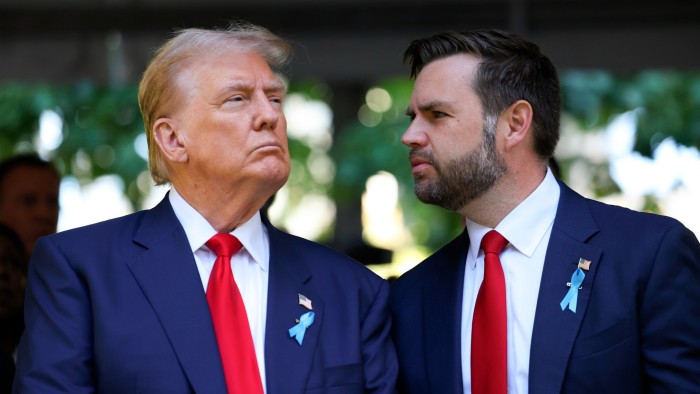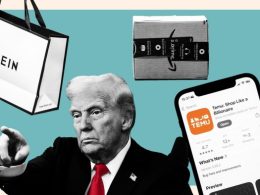Unlock the White House Watch newsletter for free
Your guide to what the 2024 US election means for Washington and the world
The writer is a professor in the Dyson School at Cornell University and senior fellow at Brookings.
US president-elect Donald Trump wants a weaker dollar in order to boost exports, protect American jobs from foreign competition and reduce the trade deficit. He also wants a strong dollar and will not brook any challenges to its dominance in global finance.
If that is not enough of an inconsistency, the new administration’s policies could well be at cross-purposes with both of those intentions. Its actions will probably boost the dollar’s value in the short run while its status as a reserve currency may well become shakier.
What it means for the world, though, is a great deal of uncertainty on US trade policies — accompanied by turbulence in global capital flows and exchange rates. Volatility in US policies and financial markets invariably spills over into other countries’ economies and markets. In the greatest irony of all, this will encourage flight into dollar assets, which are still perceived as the safest investments.
This would cement the dollar’s dominance even as Trump undercuts the institutional framework that is its bedrock.
The president-elect has talked about devaluing the dollar, but the imposition of tariffs on imports from key US trading partners would have the opposite effect — driving up the dollar’s value and making it harder for US exporters to compete in global markets.
The new administration is likely to widen the US budget deficit: tax cuts are unlikely to be matched by spending reductions. This will drive down US national saving. Meanwhile, with China, Europe, Japan and the rest of the world in the economic doldrums, the US remains one of the best places to invest. The country’s recent productivity “boomlet” is a sharp contrast to weak productivity growth in other major economies.
So the imbalance between saving and investment, which is the root of the overall US trade deficit, is only going to widen. Tariffs do matter. But unless the US walls itself off from the rest of the world, it is ultimately this imbalance that determines the trade deficit.
Trump’s running mate, JD Vance, has made the point that dollar dominance has some negative effects on the US economy. Such dominance increases demand for the currency, pushing up its value relative to other currencies. This makes US imports cheaper while making it harder for American businesses to compete in foreign markets — both of which have undoubtedly hurt US manufacturing. But Trump himself cannot condone the notion of the dollar being dethroned because of the actions of other countries. He recently threatened to punish the Brics group of economies — needless to say, with higher tariffs — if they attempted to reduce their dependence on the dollar.
And yet, it is precisely Trump’s actions that will undercut key elements of the US institutional framework. With the approval of the houses of Congress available to the president-elect, Washington’s system of checks and balances will be substantially weaker in the next few years. The rule of law will have a very different meaning in the Trump era, too, with the justice system being expressly bent to serve his political ends. Jay Powell gets to stay on as Federal Reserve chair for now, but it is a fair bet that the independence of the central bank will come under attack if its policies are at odds with Trump’s desires.
These elements of the US institutional framework are essential in maintaining the trust of domestic and foreign investors. Their imminent fraying ought to undermine the dollar.
Context and timing are everything, however. There is a deep conundrum at the heart of the international monetary system that the Trump era will bring into even sharper relief. His mercurial policies — and the volatility they create in global financial markets — will send investors worldwide (and even foreign central banks) scurrying for safety. They have nowhere else to turn other than the dollar.
For all the talk of diversification, it has become clear that the rest of the world is in no shape to contest the dollar’s dominance. The Eurozone is wracked by economic malaise and political instability, China’s economy is beset by cyclical and structural weakness and there are no other major currencies backed up by strong economies and financial systems. Even if the Trump era is good for bitcoin, its volatility means it is hardly a safe asset.
Thus, in one final paradox, the parlous state of other countries means that Trump’s policies (and his tantrums about the currency) might strengthen the dollar in both the short run and the long run rather than hurting its value or dominance. This is the case whether or not one believes in US exceptionalism. And the rest of the world has only itself to blame.
Source link









